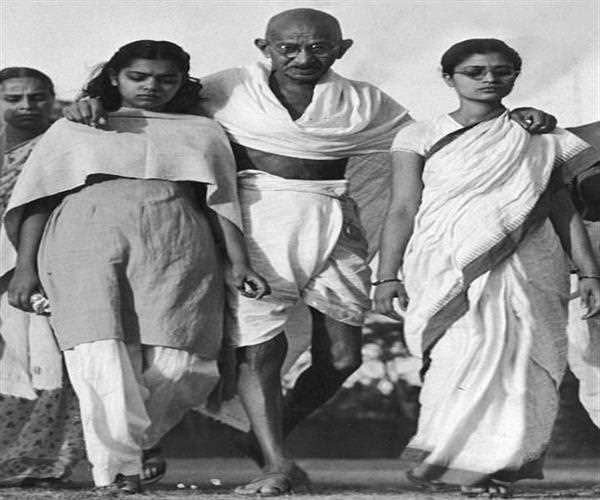
26-Jun-2024 , Updated on 8/13/2025 7:09:12 AM
Why I hate Mohandas Karamchand Gandhi?
In the tumultuous sea of political discourse, voices both venerating and critiquing the legacy of Mahatma Gandhi echo through the corridors of history. Anil Vij, a BJP minister from Haryana, brazenly stirred controversy with his outspoken criticism, casting shadows on the revered figure of the nation's father. Amidst the cacophony, Gandhi emerges not as a flawless idol but as a complex figure whose life defies easy categorization.
Gandhi's journey, from his provocative experiments with celibacy to his contentious views on race, caste, and economics, unfolds like chapters in a gripping saga. Anil Vij's words spark a firestorm, drawing attention to Gandhi's audacious attempts to conquer his own desires through unorthodox means. His intimate relations with young girls under the guise of spiritual discipline stand as stark testaments to his relentless pursuit of self-mastery, even as they scandalize his contemporaries.
Yet, beyond the bedroom intrigues, Gandhi's interactions with racism reveal deeper fissures in his persona. His early writings from South Africa paint a troubling picture, where he positioned Indians above native Africans, invoking harsh epithets that still reverberate in the annals of history. The removal of his statue from the University of Ghana underscores lingering wounds and complex legacies that stretch across continents and generations.
Equally divisive were Gandhi's views on the caste system, where his advocacy for Dalit rights clashed with his preservationist stance on caste divisions. B. R. Ambedkar's poignant criticisms resonate as Gandhi's evolving stance navigates between championing untouchables and perpetuating the very caste structure he purported to dismantle.
In economic matters, Gandhi's vision of self-reliance and small-scale industry clashes with modern pragmatism. His idealistic rejection of industrialization and profit-driven capitalism, seen through the lens of present-day experts, evokes both admiration for his foresight and skepticism about his practicality.
Through these lenses of controversy and contradiction, the enigma of Gandhi unravels—no mere saintly figure but a flawed, evolving leader whose legacy compels scrutiny and reverence in equal measure. His detractors and disciples alike weave a tapestry of discourse, grappling with the complexities of his ideals and their enduring impact on a nation's psyche.
As the dust of political debate settles, one truth remains: Gandhi, like all icons, transcends mere adulation or dismissal. His legacy is a mirror reflecting not just his times but the ongoing struggle to reconcile ideals with reality, devotion with critical inquiry, in the ever-unfolding narrative of India's journey.

Student
I am a content writter !
Comments
Join Our Newsletter
Subscribe to our newsletter to receive emails about new views posts, releases and updates.
Copyright 2010 - 2026 MindStick Software Pvt. Ltd. All Rights Reserved Privacy Policy | Terms & Conditions | Cookie Policy